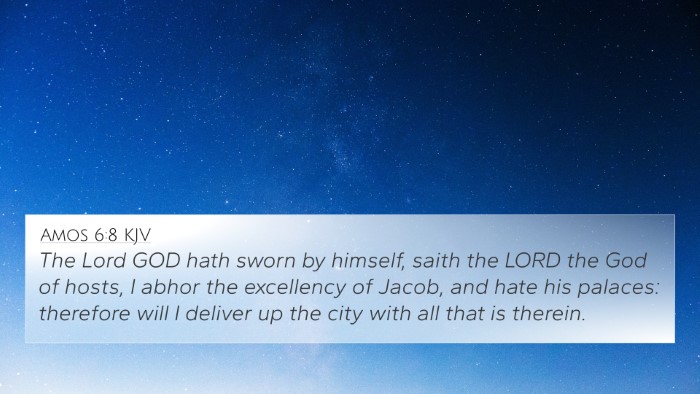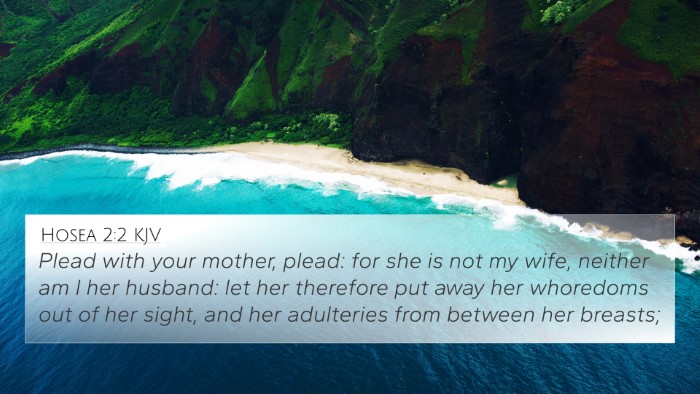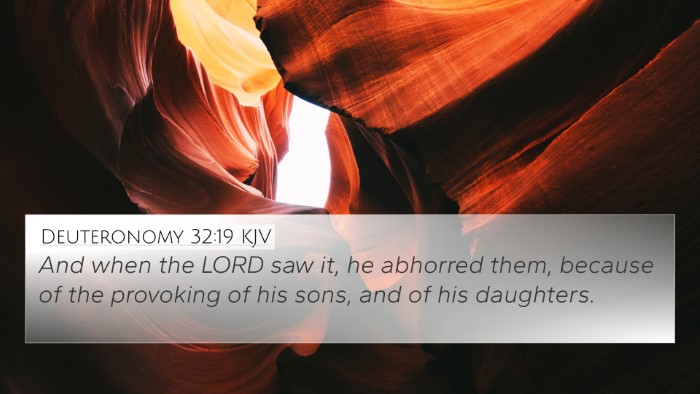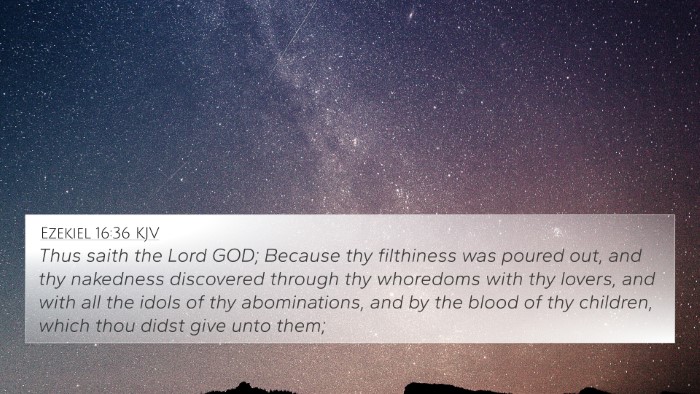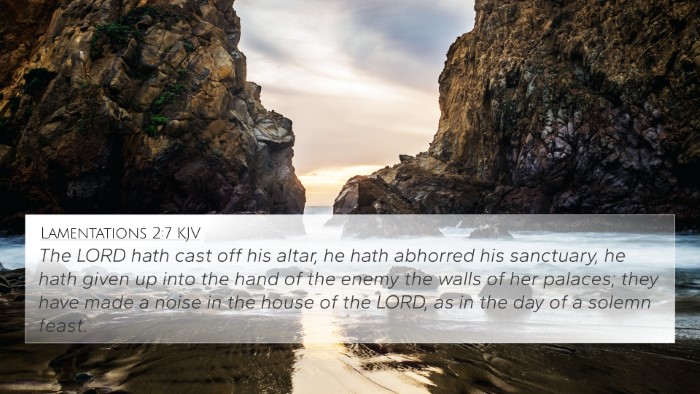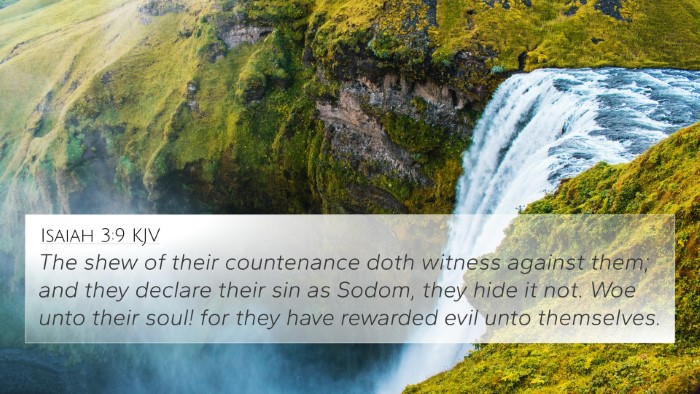Meaning of Ezekiel 23:18
Ezekiel 23:18 provides a vivid depiction of the passion and betrayal found within the hearts of the two sisters named Oholah and Oholibah, representing Samaria and Jerusalem, respectively. This verse conveys themes of infidelity, judgment, and the consequences of turning away from God.
Context and Overview
The children of Israel are frequently depicted as unfaithful to God, likened to an adulterous wife. In Ezekiel 23, the prophet uses the allegory of two sisters to illustrate this relationship. Oholah, representing Samaria, and Oholibah, representing Jerusalem, engage in immoral activities that lead to their eventual destruction.
Detailed Commentary Insights
Matthew Henry's Commentary
Henry elucidates that Oholah and Oholibah symbolize the two kingdoms of Israel and Judah. He describes the actions of these sisters as emblematic of the spiritual unfaithfulness exhibited by the people of Israel. Their turning away from God leads to severe consequences, highlighting the importance of remaining steadfast in one's faith.
Albert Barnes' Notes on the Bible
Barnes emphasizes the metaphorical language used by Ezekiel, noting that the sisters represent not just geographical locations but the deeper spiritual corruption found within the society. He suggests that the imagery evokes feelings of shock and dismay, showcasing the gravity of their sin and the subsequent divine judgment.
Adam Clarke's Commentary
Clarke draws attention to the nature of the sisters' actions, interpreting them as a rejection of God’s covenant. He relates their desire for alliances with foreign nations and idols to the overarching theme of betrayal found throughout the Book of Ezekiel. Clarke notes the significant emotional and spiritual turmoil that arises from such unfaithfulness.
Key Themes and Messages
- Infidelity: The persistent theme of spiritual adultery serves as a warning against laxity in faith and devotion to God.
- Consequences: The consequences of turning away from God are both immediate and eternal, leading to judgment.
- Repentance: The call for repentance is implied; understanding one’s failings is crucial for returning to a right relationship with God.
Bible Verse Cross-References
This verse connects to several other passages that reinforce its themes of unfaithfulness and God’s judgment:
- Hosea 1:2 - Discusses the sins of Israel using marital imagery.
- Jeremiah 3:6-10 - Offers insights into Judah's unfaithfulness and God's persistent call to repentance.
- Isaiah 1:21 - Illustrates Jerusalem's betrayal as a once-faithful city turned corrupt.
- Ezekiel 16:30-34 - Expounds on the idea of spiritual harlotry in relation to God’s covenant people.
- Revelation 2:20 - Highlights the concept of church unfaithfulness through the figure of Jezebel.
- James 4:4 - Directly warns against friendship with the world, equating it to enmity against God.
- Romans 1:21-32 - Discusses the consequences of turning away from God’s truth and embracing sin.
Connections between Bible Verses
The passage in Ezekiel can be linked to various theological discourses within the Scriptures. The thematic parallels help in understanding the overarching narrative of God's relationship with His people:
- Thematic Bible Verse Connections: The sin of idolatry is a recurring theme, found in both Old and New Testaments.
- Inter-Biblical Dialogue: The engagement with the theme of infidelity alongside God’s redemptive plan illustrates the continuity within Scripture.
- Bible verses that relate to each other: Ezekiel’s warnings reflect the teachings of Christ, emphasizing the need for spiritual fidelity.
Conclusion
In summary, Ezekiel 23:18 serves as a stark reminder of the spiritual and moral decline faced by the people of Israel. The insights from various commentaries highlight the depth of its message regarding fidelity to God and the repercussions of straying from His path. For those looking to explore this theme further, engaging with cross-references and thematic connections can enrich one’s understanding of the Bible.
